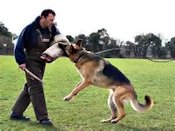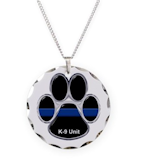 Free/Lost/Found/Stolen/Missing German Shepherds Dogs
Free/Lost/Found/Stolen/Missing German Shepherds Dogs
![]() German Shepherd Dog Owner, Trainer and Breeder Gifts
German Shepherd Dog Owner, Trainer and Breeder Gifts
![]() German Shepherd Gifts for Owners, Trainers and Breeders
German Shepherd Gifts for Owners, Trainers and Breeders
 German Shepherd Obedience Trainers
German Shepherd Obedience Trainers
 German Shepherd Protection Dogs
German Shepherd Protection Dogs
 German Shepherd Schutzhund/IPO Clubs and Organizations
German Shepherd Schutzhund/IPO Clubs and Organizations
 German Shepherd Schutzhund/IPO Protection Dog Trainers
German Shepherd Schutzhund/IPO Protection Dog Trainers
 German Shepherd Working Line Dogs
German Shepherd Working Line Dogs
Searched for About
CATEGORIES
|
Service Animals The Department of Justice published revised final regulations implementing the Americans with Disabilities Act (ADA) for title II (State and local government services) and title III (public accommodations and commercial facilities) on September 15, 2010, in the Federal Register. These requirements, or rules, clarify and refine issues that have arisen over the past 20 years and contain new, and updated, requirements, including the 2010 Standards for Accessible Design (2010 Standards). How “Service Animal” Is Defined Service animals are defined as dogs that are individually trained to do work or perform tasks for people with disabilities. Examples of such work or tasks include guiding people who are blind, alerting people who are deaf, pulling a wheelchair, alerting and protecting a person who is having a seizure, reminding a person with mental illness to take prescribed medications, calming a person with Post Traumatic Stress Disorder (PTSD) during an anxiety attack, or performing other duties. Service animals are working animals, not pets. The work or task a dog has been trained to provide must be directly related to the person’s disability. Dogs whose sole function is to provide comfort or emotional support do not qualify as service animals under the ADA. This definition does not affect or limit the broader definition of “assistance animal” under the Fair Housing Act or the broader definition of “service animal” under the Air Carrier Access Act. Some State and local laws also define service animal more broadly than the ADA does. Information about such laws can be obtained from the State attorney general’s office. If someone's dog calms them when having an anxiety attack, does this qualify it as a service animal? It depends. The ADA makes a distinction between psychiatric service animals and emotional support animals. If the dog has been trained to sense that an anxiety attack is about to happen and take a specific action to help avoid the attack or lessen its impact, that would qualify as a service animal. However, if the dog's mere presence provides comfort, that would not be considered a service animal under the ADA. Where Service Animals Are Allowed Under the ADA, State and local governments, businesses, and nonprofit organizations that serve the public generally must allow service animals to accompany people with disabilities in all areas of the facility where the public is normally allowed to go. For example, in a hospital it would be inappropriate to exclude a service animal from areas such as patient rooms, clinics, cafeterias, or examination rooms. However, it may be appropriate to exclude a service animal from operating rooms or burn units where the animal’s presence may compromise a sterile environment. Service Animals Must Be Under Control Under the ADA, service animals must be harnessed, leashed, or tethered, unless these devices interfere with the service animal’s work or the individual’s disability prevents using these devices. In that case, the individual must maintain control of the animal through voice, signal, or other effective controls. Do they have to be quiet and not bark? Under control also means that a service animal should not be allowed to bark repeatedly in a lecture hall, theater, library, or other quiet place. However, if a dog barks just once, or barks because someone has provoked it, this would not mean that the dog is out of control. Do service animals have to wear a vest or patch or special harness identifying them as service animals? No. The ADA does not require service animals to wear a vest, ID tag, or specific harness. |
Deutscher Schäferhunde Many people say at 2 years is considered to be Adult GSD and fully mature at 3+ years old. Some people say the fear period as puppy GSD ends at 18 Months of age, meaning he is qualify to be as self-confident GSD like an adult dog. When you're talking maturity there are many factors involved. Bone freeze occurs around 11 months. There will be no more "growth" after that, but they will "fill out" until the age of 2 and some, beyond that. It has been my experience, when they are 3, they are mature mentally. Dogs will consider puppies as just that until about the age of 6 months, then all bets are off. This is when you may start to see aggression from an older dog toward the youngster. Sometimes, it will be just to put them in their place, but it can lead to injury and even death. Physically, 2...mentally 3...to another dog, 6 months |



 Categories
Categories  Areas
Areas  Place a FREE ad
Place a FREE ad
 Colors
Colors 
























 Alabama
Alabama
 Alaska
Alaska
 Arkansas
Arkansas


 British Columbia
British Columbia
 Bulgaria
Bulgaria
 California
California





